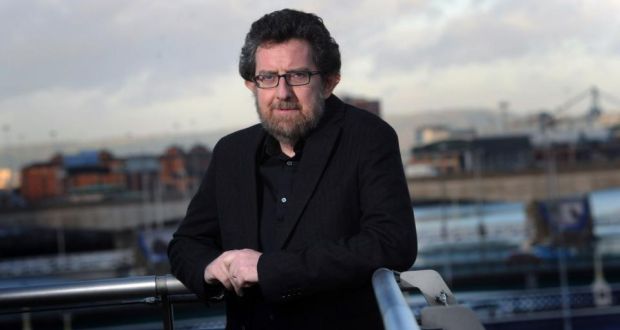Atlantic Philanthropies’ $1.1bn is ‘drop in ocean’ next to what State can invest
Resource type: News
The Irish Times | [ View Original Source (opens in new window) ]
Vulnerable are being pushed away from central decision-making, says foundation member

Atlantic Philanthropies Ireand’s Martin O’Brien will deliver the Dave Ellis lecture – in memory of the activist who worked with community groups in Dublin for more than 20 years – at the Rotunda Hospital, Dublin tonight. Photograph: Colm Lenaghan/ Pacemaker
The creation of a better society is most forcefully achieved by changing Government policies and practices, the most senior member of Atlantic Philanthropies in Ireland has said.
Martin O’Brien, senior vice-president for programmes with the foundation, said Atlantic was “preoccupied with what we leave behind us” as it prepares to exit Ireland.
In an interview with The Irish Times, he says he hopes one of the lessons Atlantic leaves Ireland is that philanthropic foundations must lever resources to secure maximum change.
Atlantic Philanthropies has invested over US$1.1 billion (€812 million) in Ireland since 1988, focused in areas such as dementia care, higher education, immigration, early childhood education and gay rights. A hallmark has been that the foundation seeks evidence from the projects it funds to influence policy beyond the projects themselves.
It will make its last round of grant decisions next year and expects to have wound down operations here by 2016.
“That $1.1 billion is significant, but it is a drop in the ocean compared to what Government can invest,” says O’Brien.
“If you can get the Government to do the right thing, to direct resources in a just way, that will potentially bring about broader systematic and more far-reaching change.”
One of the most important sites for securing change “that abides” is the law, he argues. Public interest litigation is an important engine for positive social change and, in this vein, Atlantic has regularly supported campaigns to secure new laws or repeal bad ones, he says, pointing to its support for civil partnership and same-sex marriage, legislation on mental capacity to protect the rights of people with impaired intellectual abilities and fairer immigration law.
He salutes organisations such as Flac, which as well as offering free legal advice to people who might not otherwise be able to access it, has championed cases to bring about social justice, such as that taken on behalf of Lydia Foy to win gender recognition legislation. He describes however as “a shameful indictment” of the State, that six years after theHigh Court ruled in her favour no gender recognition legislation has been enacted here.
It is a case which, he says, underlines how law alone cannot achieve change on the ground. There is a need for public awareness, advice and assistance to people on how to claim their rights and, “perhaps most importantly”, the mobilisation of people, particularly the most vulnerable who may be most affected by social change, around the issue.
“Rights have to be asserted both inside and outside the courts,” he says. It is a matter of concern that the most vulnerable in Irish society have been pushed further away from central decision-making, through cuts to the community sector and the rationalisation of such bodies as the Equality Authority, Combat Poverty Agency and the Human Rights Commission.
He quotes US civil liberties lawyer, Bryan Stevenson, who says “the opposite of poverty is not wealth but rather justice”. He cites Stevenson’s list of things required in a just society.
“At the top is the need to be proximate or close to the people who need the change. To be effective you must know and understand what people are going through. It’s no use staying detached,” says O’Brien.
When asked about a recent proposal that tax exiles should be encouraged to donate to philanthropy in return for extra days in Ireland, he says this is “not real philanthropy”.
“Philanthropy is about giving,” he says, “not about getting something back.”
lMartin O’Brien will deliver the Dave Ellis lecture – in memory of the activist who worked with community groups in Dublin for more than 20 years, and who died in 2007 – at the Rotunda Hospital, Dublin tonight.